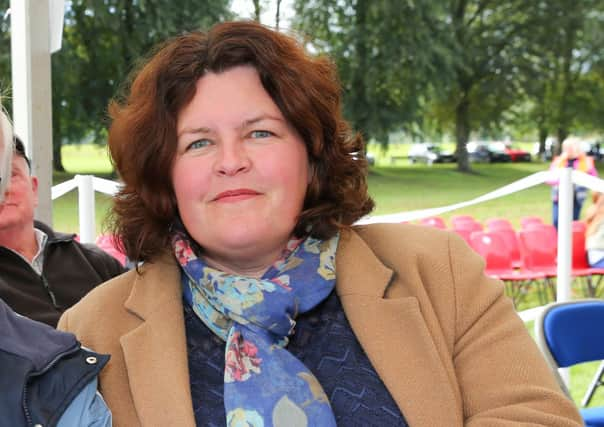Exams protocol ‘fairest could be devised’ says councillor


For Armagh, Banbridge and Craigavon Councillor Louise McKinstry it has added significance, not just as a local representative, but also as a teacher and a parent.
She said: “I read through the details several times; as a mum of a year 11 pupil about to take his first GCSE modules, as a maths teacher in a secondary school with GCSE and AS level classes, as an examiner for CCEA and as a public representative.
Advertisement
Hide AdAdvertisement
Hide Ad“Broadly speaking, this is the fairest protocol that could be devised.
“I was dreading having to award grades to pupils without proper structure. Teachers have been asked to rank students sitting each exam and grades will be awarded by CCEA.
“As a teacher, I have a wealth of data to support the ranking I decide upon. There are module results already in the bag for Year 12 students. In class, teachers monitor students as they progress through their courses, testing at regular intervals, and parents are kept informed of how their child performs, a process called tracking. In many cases, this will give pupils the result they deserve, not just a result that reflects their performance on a particular day.”
However, she warned the situation ‘may not be kind’ to those student who “cram” at the last minute.
Advertisement
Hide AdAdvertisement
Hide AdShe said: “My son is one of those who leaves it to the last minute and crams it in over the last few weeks. This situation will not be kind to him and those like him.
“Exam results are supposed to reflect the students’ ability in a subject and just because a student pulls it off in an exam, that is still a measure of their understanding of the content to which they have been exposed.
“Then I reflect on the students I teach who have performed well in their tracking for two years but the stress of formal exams inhibit performance and the final result is not a true reflection of their ability.
“Year 11 and 13 pupils are more of a worry, there is a decision to be made. They can trust the assessment of their teachers to grade their work for the first year of study and the final exams at the end of year 12 or 14 will be the only ones they take.
Advertisement
Hide AdAdvertisement
Hide Ad“The other option is to take modules for the first year of study alongside their final exams. There is no risk in doing this, as the best result will stand.
“However, will their performance in the final exam be impacted by trying to study for double the amount of exams in one exam series? Only students and their parents can make this decision.”
She went on: “What is most important in this scenario is that teachers’ judgement and professionalism is respected. The decisions which will be made will be confidential until final results are revealed. This will place enormous pressure on teachers who are already feeling the burden of this responsibility.
“There will be many WhatsApp messages and Zoom meetings between teachers over the next few weeks, I know many discussions have already started.
Advertisement
Hide AdAdvertisement
Hide Ad“Parents and students should stay in touch with schools and keep up to date with the work set on online learning platforms.
“There is no such thing as wasted learning and all work submitted will have a value.
“Schools and teachers are still digesting this information and planning their next steps to give pupils the best chance of a good grade next year.
“We all want the same thing, for students to get the grades they deserve, to prepare students for the world of work and be positive contributors to society.
“Goodness knows, we will need them in the years ahead as our lives and our economy recovers from this.”